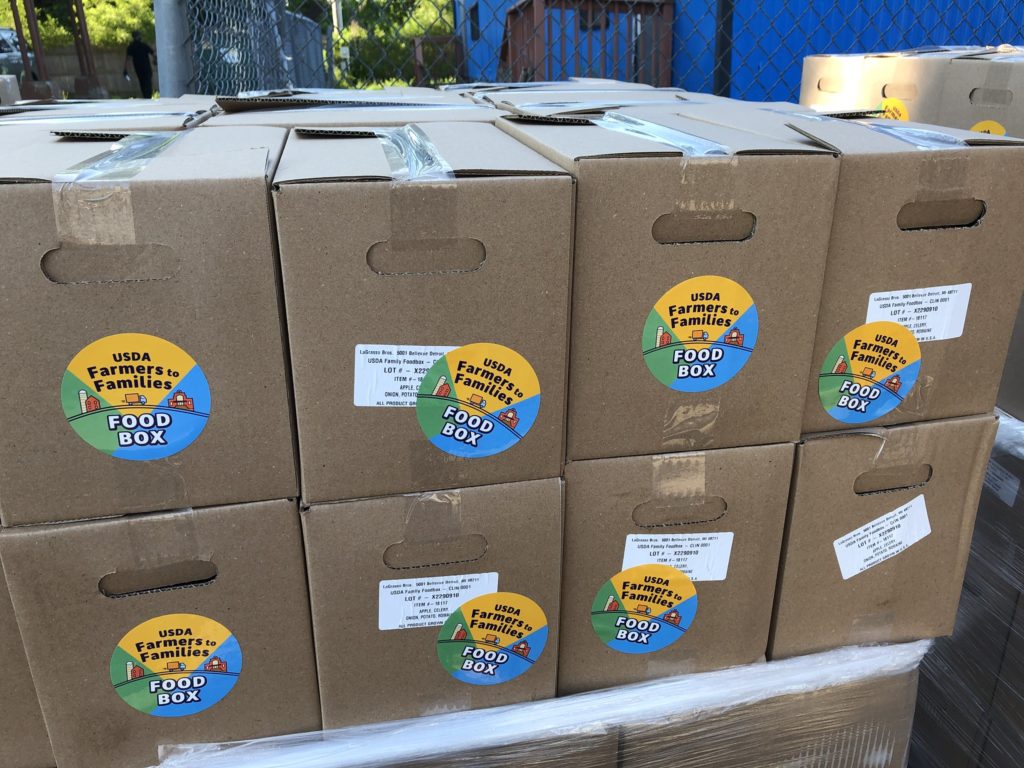In early August, USDA’s Agricultural Marketing Service (AMS) announced several changes to the Farmers to Families Food Box Program, an innovative new program developed by USDA amidst the COVID-19 pandemic to feed hungry families and support the food and agriculture sector. Among the changes announced in August was the addition of Swiss cheese to the list of cheeses allowed in the dairy boxes and the combination boxes. While this addition may seem like a relatively small change, it is the result of a strong partnership between IDFA and the Agriculture Department that seeks to deliver safe, nutritious dairy products to those in need during these tough times.
While you may be aware of USDA AMS solicitations for food purchases in support of various programs like the National School Lunch Program, the new Food Box Program, and other federal nutrition programs like Section 32 purchases, you may not know that for AMS to obtain these commodity purchases they need a specification for each product. While it is intuitive that a specification is a basic requirement for defining the basic parameters of a product purchase agreement, it may not be apparent that many common food products like Swiss cheese lack a FDA standard of identity (SOI) regulation that defines the product characteristics. Furthermore, some dairy products don’t have a well-defined standard of any sort even within the industry. USDA AMS uses a system of Commodity Item Descriptions (CIDs) to provide clear specifications for the agricultural products they intend to purchase. Although the USDA has developed CIDs for many dairy products, there remain many products that lack a CID, which, until early August, was the case for Swiss cheese.
Understanding the significant market share that Swiss cheese commands, the surplus of the product resulting from lost demand, and the lack of a CID for Swiss cheese, IDFA embarked on a data collection effort in partnership with AMS to facilitate the development of a CID. The initial action by IDFA’s regulatory team was to review the FDA regulations for a standard of identity on Swiss Cheese. Finding a SOI under FDA regulation 21CFR133.95 Swiss and Emmentaler Cheese, we were able to extract certain relevant product parameters such the dairy ingredients, enzymes, and other optional ingredients that are used in the manufacture of Swiss Cheese. Minimum milkfat requirements were also specified. Using comparator CIDs for other cheese products, our regulatory team then developed a survey for IDFA members that manufacture Swiss Cheese that solicited information on the product specification not found in the FDA regulation such as variations in the products (e.g., Baby Swiss, Aged Swiss, etc.), the form/shape of the product (e.g., chunk, shredded, sliced, etc.), shelf life, pack size, vendor number and capacity, and estimated price per pound.
After reviewing IDFA’s survey results, AMS subsequently solicited a series of more specific questions. Through an iterative process, IDFA was able to satisfy the needs of AMS in the creation of the CID for Swiss cheese, thus enabling AMS to add it as part of the dairy fulfillment requirement in the Food Box Program. The result: Swiss cheese manufacturers, many with large inventories of product, are now able to bid on the program’s round three solicitation. Pending the awarding of contracts, this will allow for the delivery of Swiss cheese, a nutritious and wholesome dairy product, to families in need of food.
To learn more about U.S. Government Purchase Programs, vendor requirements, and open solicitations for dairy products, click here.
IDFA Staff Expert

Joseph Scimeca
Former Senior Vice President, Regulatory & Scientific Affairs, IDFA

